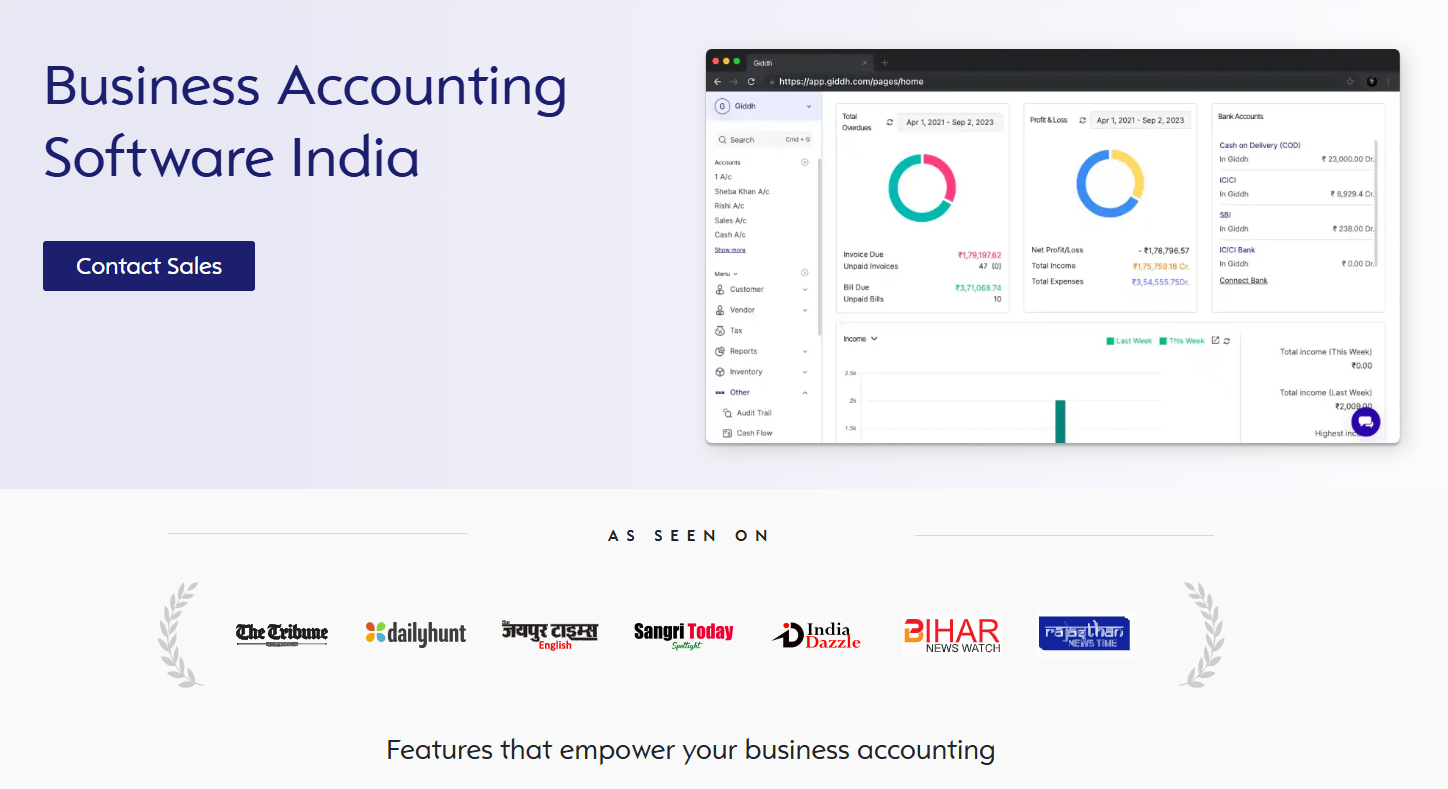Top 7 Financial Reporting Software to Ensure Compliance
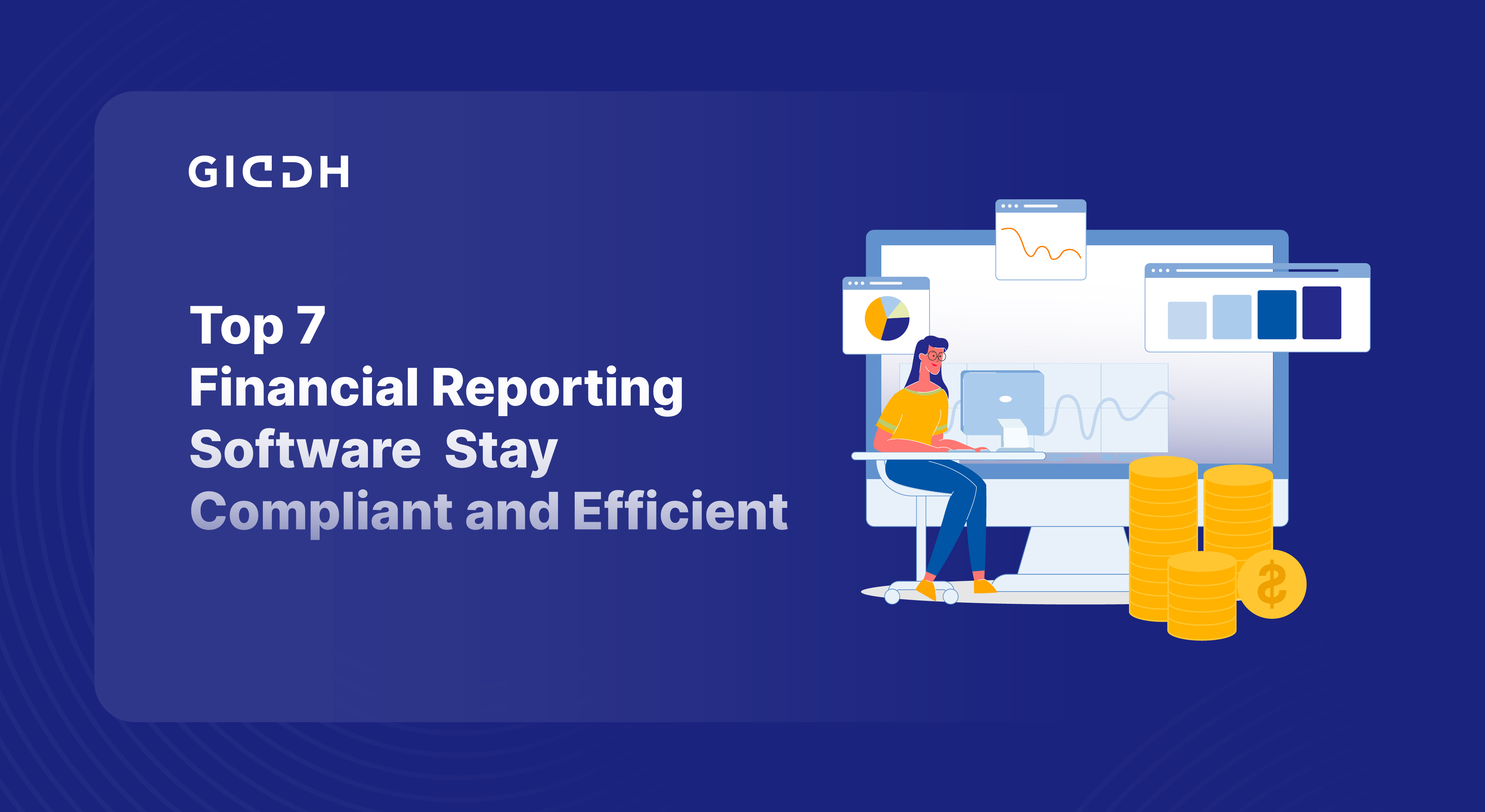
In 2025, India's manufacturing MSMEs face an overwhelming regulatory burden, with annual compliance costs ranging from ₹13 lakh to ₹17 lakh and navigating over 1,450 regulatory obligations across various laws. This complex landscape poses significant challenges for small and medium-sized enterprises (SMEs), including:
-
Complex Financial Regulations: Constantly evolving tax laws and compliance requirements demand meticulous attention.
-
Time-Consuming Manual Processes: Manual data entry and reporting are prone to errors and inefficiencies.
-
Human Oversight Risks: Even minor mistakes can lead to significant financial penalties and legal consequences.
To address these challenges, financial reporting software has emerged as a vital tool for SMEs. These solutions automate compliance tasks, ensure real-time updates on regulatory changes, and streamline the reporting process, reducing errors and saving time.
This blog discussed how financial reporting software helps small and medium-sized businesses stay compliant and improve efficiency. It also highlighted the top tools available and how they streamline reporting and forecasting, ultimately enabling enterprises to make more informed decisions and reduce risks.
Why Financial Reporting Software is Crucial for Compliance
Compliance in financial reporting ensures that businesses meet local and international regulations, safeguarding them from penalties or legal challenges.
For Indian businesses, this means adhering to standards such as GST, IFRS, and other regulatory frameworks. Compliance isn't just about following rules; it's about maintaining transparency and accuracy, which builds trust with stakeholders, regulators, and customers.
-
Stay in line with local and global standards: Ensures businesses comply with standards like GST in India and international regulations like IFRS.
-
Reduces risks: Helps minimize the chances of errors and legal issues due to missed compliance.
-
Improves financial integrity: Promotes transparent and accurate financial reporting practices.
The Role of Automation
Financial reporting software automates key compliance tasks, transforming a traditionally manual process into a seamless, efficient one. By eliminating repetitive manual steps, these tools reduce human errors that could lead to costly non-compliance.
Automation also ensures that reports are generated quickly, with no delays or discrepancies, helping businesses stay ahead of deadlines.
-
Eliminates human error: Reduces the risk of mistakes often made in manual calculations or data entry.
-
Ensures timely compliance: By automating tasks like tax calculations and regulatory updates, it ensures deadlines are met.
-
Improves accuracy: Automatically adjusts for updates in tax laws, ensuring that reports are correct and compliant.
Key Benefits
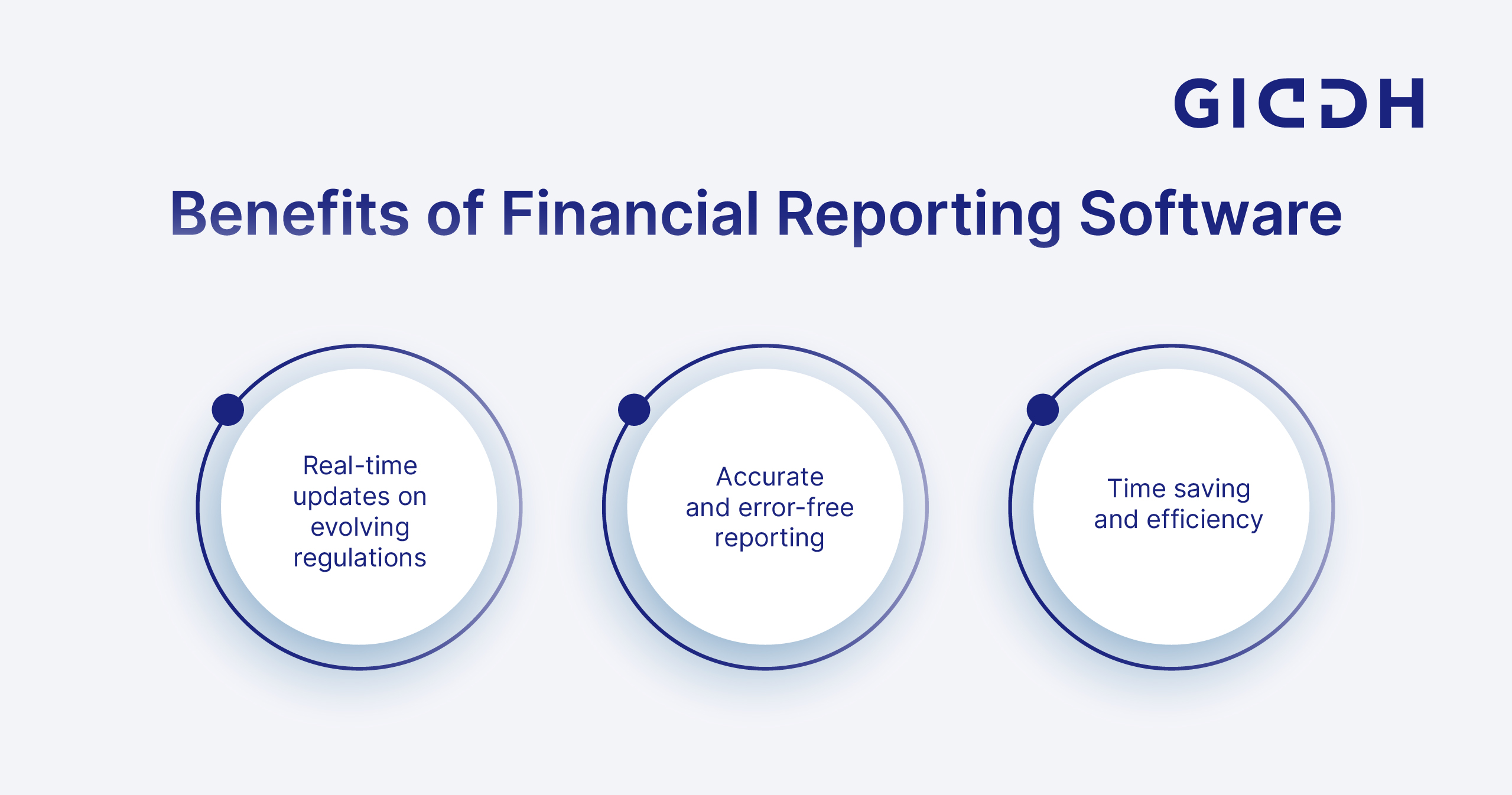
Financial reporting software provides several advantages that enhance compliance management for businesses, particularly those operating in industries with frequent regulatory changes. These benefits not only enhance compliance but also improve overall business efficiency.
-
Real-time updates on evolving regulations: Stay informed with the latest changes in financial laws, reducing the risk of non-compliance due to outdated information.
-
Accurate and error-free reporting: Automation ensures that your financial data is error-free, maintaining the integrity of your reports.
-
Time savings and efficiency: Save hours of manual work by automating the generation of reports, forecasts, and tax filings, allowing you to focus on more strategic business activities.
Top 7 Financial Reporting Tools You Need to Know
Selecting the right financial reporting tool is crucial for businesses seeking to stay compliant with regulations, streamline financial reporting, and minimize the risk of errors.
In this section, we will explore seven financial reporting tools that can help businesses enhance efficiency and ensure compliance.
1: Giddh – Simplifying Compliance for Indian SMEs
Giddh is an innovative financial reporting and accounting software tailored for small and medium-sized enterprises (SMEs) in India. It offers an easy-to-use interface that simplifies complex financial reporting tasks, ensuring businesses stay compliant with the latest tax regulations, such as GST.
With its automated features and seamless integration capabilities, Giddh is designed to save time and reduce human error in the reporting process.
Key Reporting Strengths:
-
Real-Time Financial Insights – Live dashboards for cash flow, profit & loss, balance sheet, and tax summaries.
-
Customizable Reports – Drill-down views for ledgers, transactions, and inventory for faster decision-making.
-
Compliance-Ready Data – Auto-prepared GST returns, TDS calculations, and audit-friendly reports.
-
Multi-Company & Multi-User Access – Consolidated reporting across branches with controlled permissions.
-
Automated Scheduling – Set recurring reports to be automatically emailed to stakeholders.
Giddh transforms compliance and reporting into a seamless, error-free process, enabling SMEs to focus on growth rather than paperwork.
Why Giddh is the Best Financial Reporting Tool for SMEs:
Giddh’s combination of powerful features and affordability makes it an excellent choice for small and medium-sized businesses in India. Its focus on local tax compliance and seamless integration with various accounting systems makes it a top pick for those looking to streamline their financial processes.
Pros:
-
Simple, intuitive interface.
-
Strong focus on GST compliance.
-
Affordable for small businesses.
-
Scalable as your business grows.
Cons:
-
Limited advanced features for larger enterprises.
-
Some users may find the learning curve for advanced features slightly steep.
2: Xero
Xero is a cloud-based accounting software that provides businesses with powerful tools for managing their financial reporting, invoicing, and payroll. It's known for its user-friendly interface and comprehensive reporting features, making it a popular choice among small to medium-sized businesses worldwide.
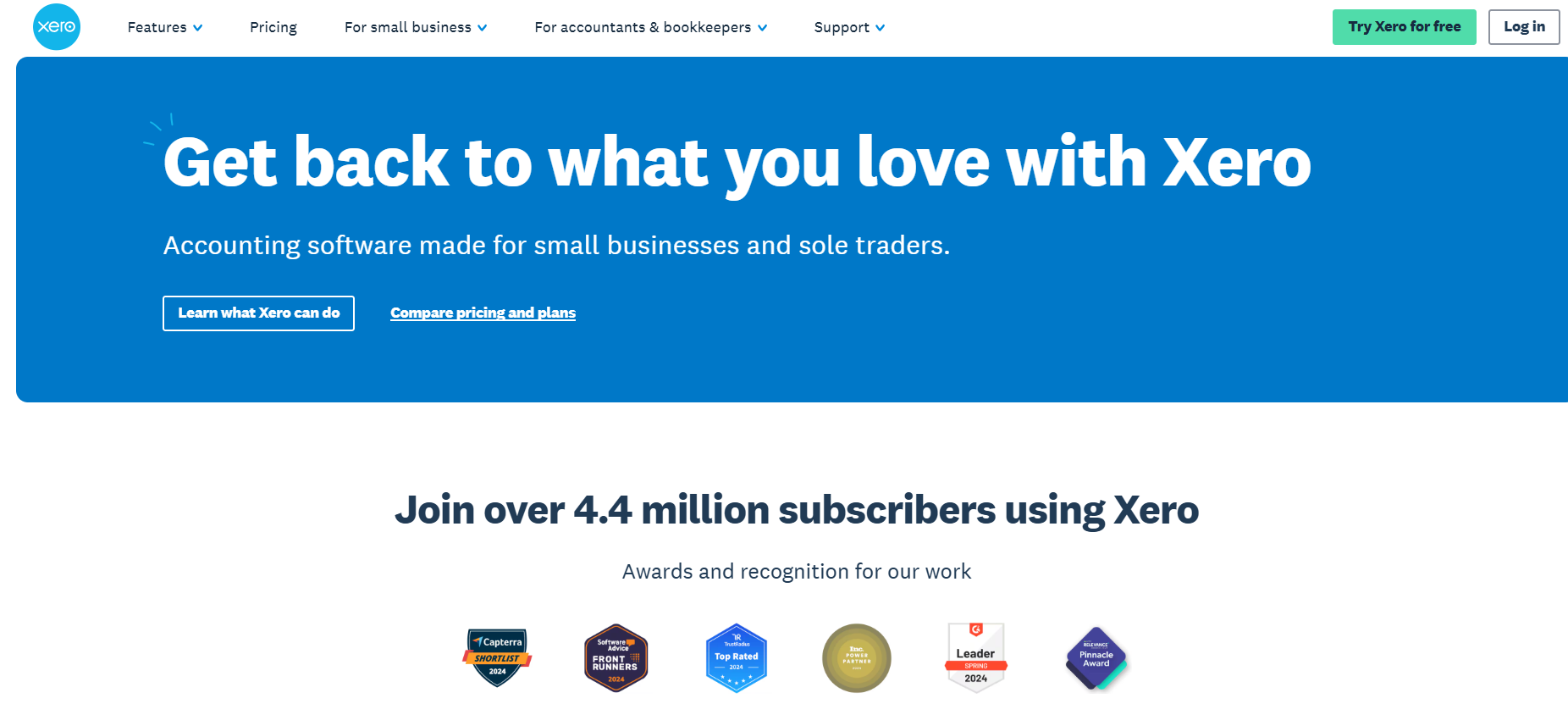
Xero enables businesses to automate financial tasks and provides a range of customizable reports to support informed decision-making.
Features:
-
Real-time financial reporting.
-
Easy integration with bank accounts and third-party apps.
-
Multi-currency support.
Pros:
-
Highly intuitive and easy to use.
-
Scalable for growing businesses.
-
Strong customer support and resources.
Cons:
-
Higher pricing tier for advanced features.
-
Limited offline functionality.
3: QuickBooks Online
QuickBooks Online is one of the most widely used accounting software platforms, known for its ability to handle financial reporting, tax compliance, and payroll processing seamlessly. It's an excellent tool for businesses looking for simplicity and robust features in one package.
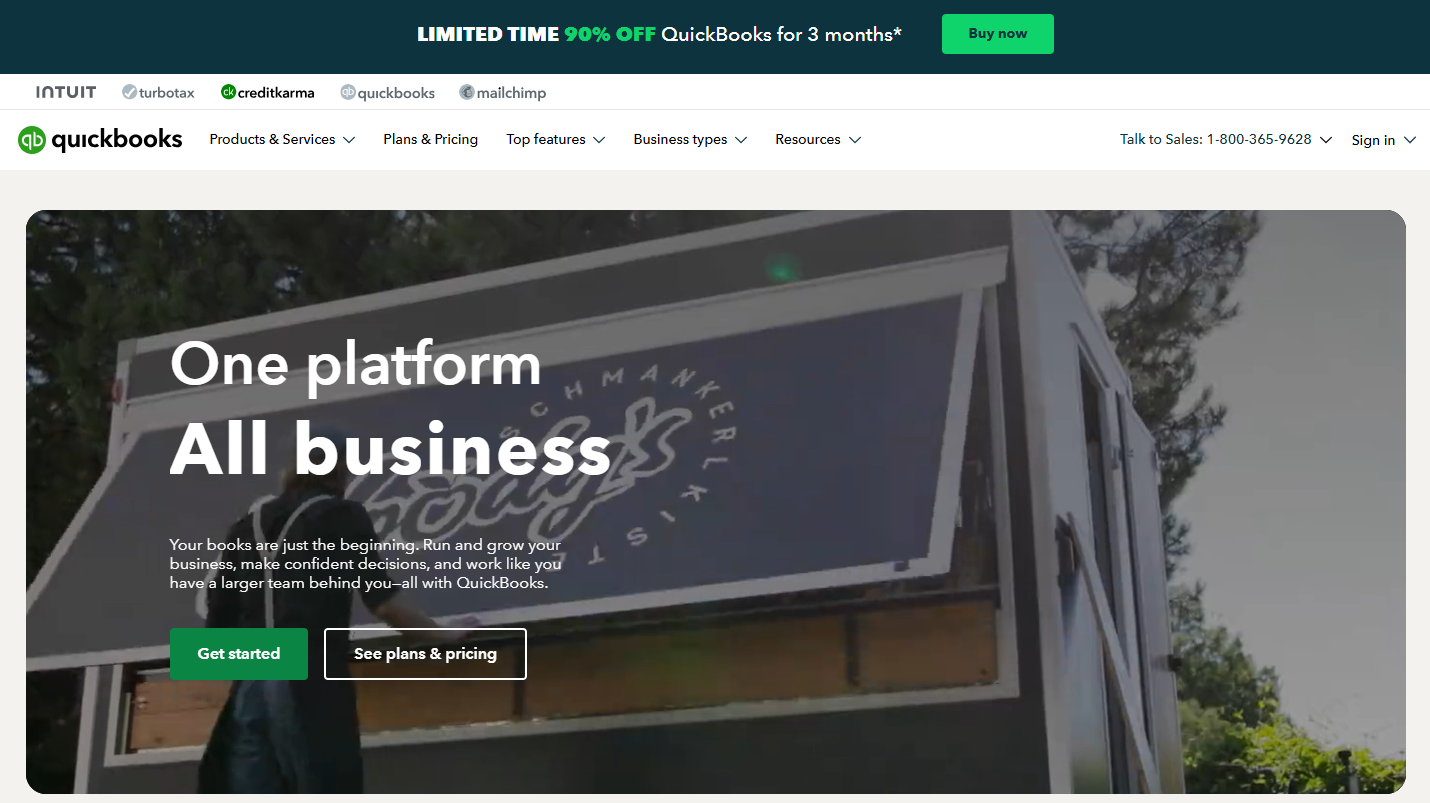
QuickBooks Online provides a comprehensive suite of financial management tools, including automatic tax calculations and extensive reporting options.
Features:
-
Automated tax and compliance management.
-
Customizable financial reports.
-
Multi-user access.
Pros:
-
User-friendly interface.
-
Excellent customer support.
-
Seamless integration with various third-party apps.
Cons:
-
Price can be high for smaller businesses.
-
Some advanced features are only available in higher-tier pricing.
4: Zoho Books
Zoho Books is an accounting software solution that enables businesses to automate accounting tasks, track expenses, manage inventory, and stay compliant with tax regulations.
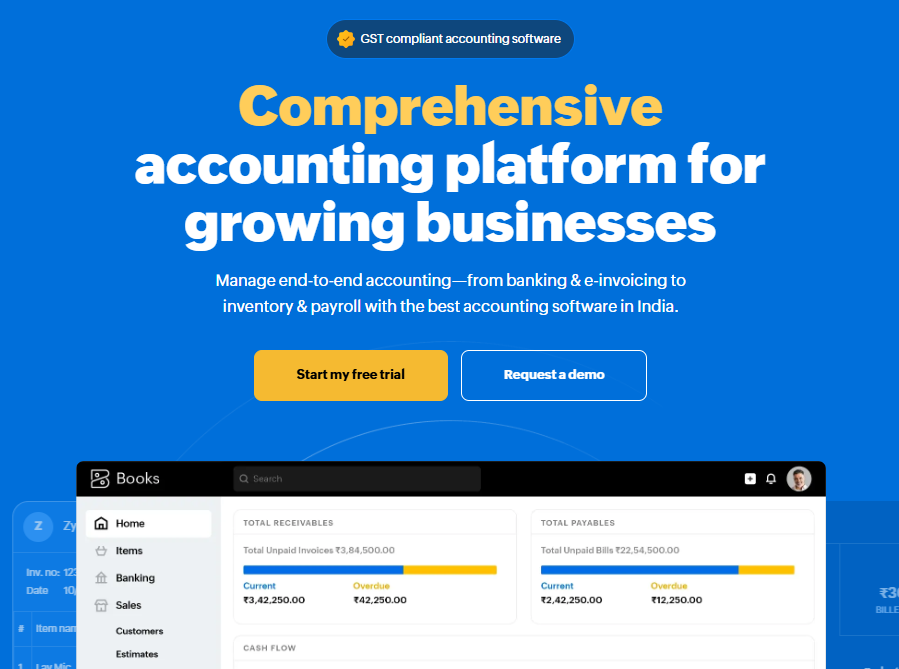
Zoho Books is designed for small to medium-sized businesses, offering an intuitive interface and comprehensive financial reporting tools.
Features:
-
Tax compliance management (GST, VAT).
-
Multi-currency support.
-
Automated invoicing and payment reminders.
Pros:
-
Affordable for small businesses.
-
Strong integration with other Zoho tools.
-
Automated financial workflows.
Cons:
-
Lacks advanced reporting options compared to competitors.
-
Limited integrations with non-Zoho software.
5: FreshBooks
FreshBooks is a cloud-based accounting solution designed for small businesses and freelancers. It streamlines financial reporting, invoicing, and time tracking, making it an excellent choice for service-based businesses.

FreshBooks specializes in user-friendly financial management tools, making it ideal for freelancers and small businesses.
Features:
-
Automated invoicing and expense tracking.
-
Time tracking for billable hours.
Pros:
-
Very easy to use and navigate.
-
Excellent customer support.
-
Suitable for freelancers and service-based businesses.
Cons:
-
Limited features for larger businesses.
-
No payroll management features.
6: Microsoft Dynamics 365 Finance
Microsoft Dynamics 365 Finance is a comprehensive ERP system that provides advanced financial reporting and management capabilities for larger businesses or enterprises. It offers powerful tools for financial forecasting, compliance tracking, and decision-making.
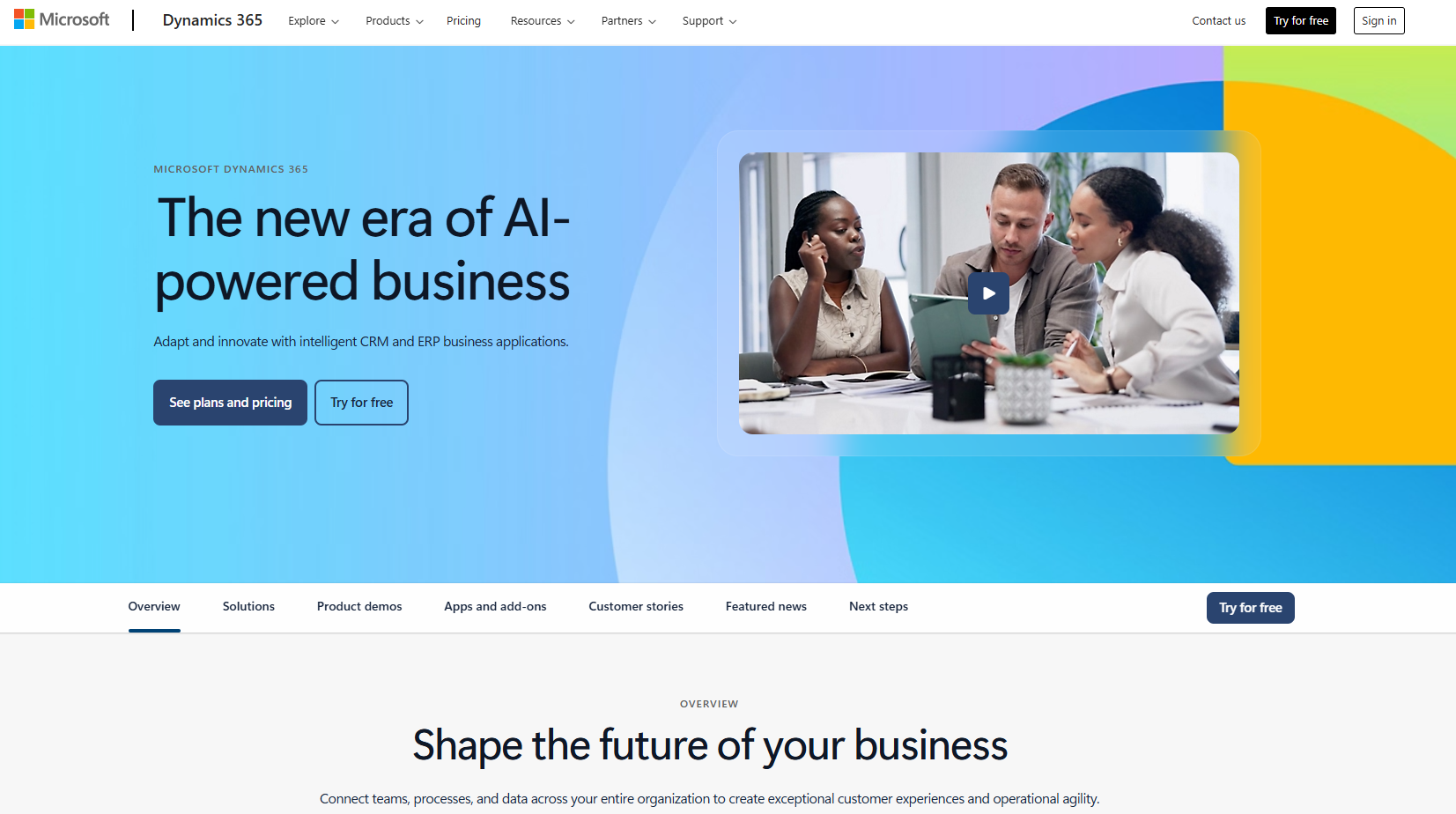
Microsoft Dynamics 365 Finance is designed for businesses that need advanced financial management and deep integration with other business processes.
Features:
-
Detailed financial reporting and forecasting.
-
Multi-currency and multi-country support.
-
Integration with Microsoft products and other ERP systems.
Pros:
-
Highly customizable.
-
Robust security and compliance features.
-
Strong integration with the Microsoft ecosystem.
Cons:
-
It can be expensive for small to medium-sized businesses.
-
Requires a more technical setup.
7: Tally
Tally is one of India’s most trusted accounting software solutions. It’s known for its ability to manage financial reporting, inventory, payroll, and taxation with a focus on GST compliance.
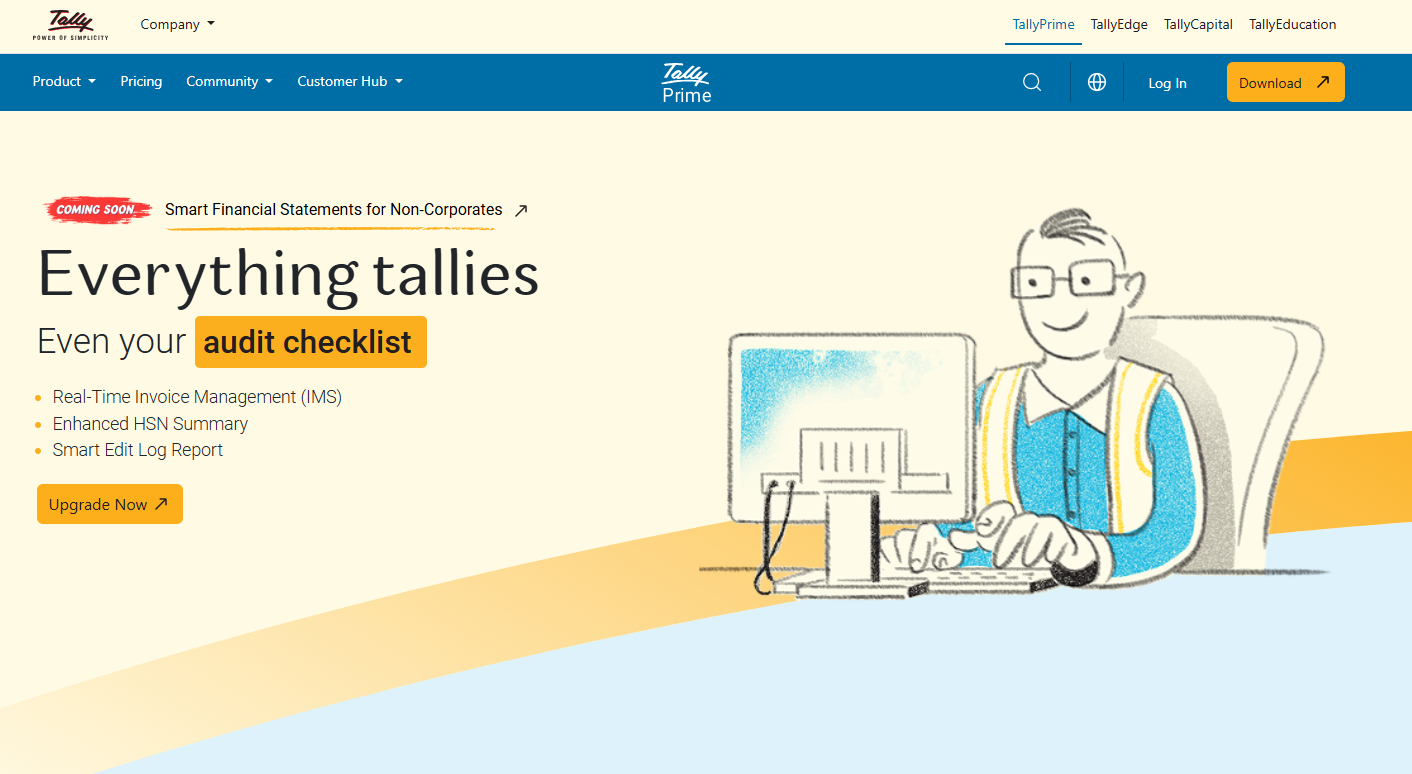
Tally is a comprehensive accounting tool used by many small and medium businesses in India. It provides easy financial reporting and tax management.
Features:
-
GST-compliant invoicing and reporting.
-
Comprehensive payroll and inventory management.
-
Multi-user support.
Pros:
-
Widely recognized in India.
-
GST-ready and offers local compliance features.
-
Easy integration with other software.
Cons:
-
It can be challenging for beginners to navigate.
-
The interface feels outdated compared to newer tools.
How Financial Reporting Software Streamlines Financial Forecasting and Reporting
Financial reporting software is no longer just about meeting compliance requirements; it has evolved to offer powerful tools for forecasting and in-depth financial analysis.
These advanced features enable businesses to predict future financial trends, manage cash flow efficiently, and avoid potential compliance issues arising from changing regulations.
-
Advanced Reporting Capabilities: Modern financial reporting software provides more than just basic compliance. It enables in-depth analysis, providing insights into revenue, expenses, and profitability trends.
-
Predictive Forecasting: The software's built-in tools help predict future financial conditions, providing businesses with a clear view of potential growth or downturns, enabling better decision-making.
-
Real-time Access to Data: With automated data updates, businesses can access the most current financial information, ensuring they never make decisions based on outdated or incomplete data.
Example Use Case
Consider a small business in India that uses financial reporting software to predict its cash flow. By analyzing past trends and adjusting for future revenue and expenses, the company can avoid shortfalls and stay compliant with ever-changing regulations.
This proactive approach to forecasting allows them to take corrective actions before any compliance issues arise.
-
Avoiding compliance pitfalls: By forecasting potential cash flow issues and understanding regulatory changes, businesses can make timely adjustments to stay compliant.
-
Improved financial planning: By leveraging forecasting tools, small businesses can align their budgets with future expectations, ensuring they are prepared for both growth and unexpected expenses.
The Impact of Automation and Predictive Analytics
Automation and predictive analytics are transforming the way businesses handle financial reporting. Instead of relying on manual inputs, companies can automate key tasks and gain valuable insights into their economic status.
This shift is particularly impactful in India, where businesses must stay on top of constantly changing tax regulations and compliance standards.
-
Automated updates on regulatory changes: Financial reporting software automatically adjusts for updates in regulations like GST, saving businesses from having to track changes manually.
-
Data-driven decisions: Predictive analytics enable businesses to anticipate market shifts, allowing them to act swiftly and stay competitive and compliant.
-
Enhanced decision-making: By offering a clearer financial outlook, businesses can make more informed decisions, reducing the risk of non-compliance and financial mismanagement.
Conclusion
Staying compliant with ever-changing financial regulations is essential for the success of any business, yet it can often feel overwhelming. Financial reporting software simplifies this process by automating complex tasks and providing real-time updates on regulatory changes.
With the right software, businesses can eliminate manual errors, streamline their reporting process, and focus on growth with peace of mind. Investing in the right financial reporting software is not just about meeting current compliance standards, but also about setting your business up for long-term efficiency.
By selecting a solution that meets your needs, you’ll save valuable time, mitigate risks, and improve your financial planning. We encourage you to explore the options available and experience firsthand how financial reporting software can transform your compliance and reporting processes.
Sign up for a demo today to discover how it can benefit your business.
